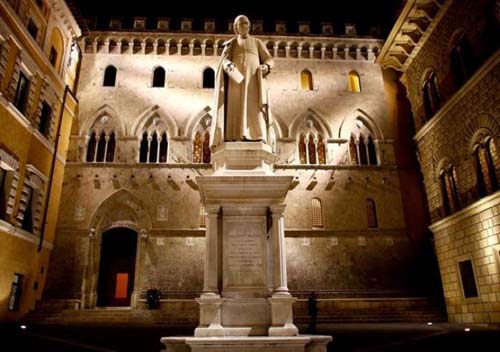Italy expects to sell Monte dei Paschi after restructuring

Rome: Rome expects to return Monte dei Paschi di Siena (BMPS.MI) into private hands only after the bailed-out lender completes restructuring steps it is currently discussing with European Union authorities, Italy’s economy minister said on Monday.
Under new CEO Luigi Lovaglio, Monte dei Paschi (MPS) is revising a 2022-2026 strategic plan readied by previous management which needs approval by European authorities.
Economy Minister Daniele Franco told a parliamentary hearing the bank would know once the plan is ready how much money it needs to raise. For now the 2.5 billion euro capital raising envisaged by the existing plan appears adequate, he added.
A veteran UniCredit (CRDI.MI) executive, Lovaglio is set to ready his strategy for MPS in June and complete the capital raising in October, based on an internal MPS document.
The turnaround will then prepare the bank to be sold, Franco said, after Rome last year failed to clinch a deal with UniCredit.
“It is reasonable to expect that only after the capital increase and the restructuring steps envisaged in the new business plan, the best conditions will be there for the privatisation,” Franco told lawmakers.
Italy is negotiating with European Union authorities a years-long extension of an end-2021 privatisation deadline for MPS, which Rome failed to meet because UniCredit in October walked away from a possible acquisition of the bailed-out rival.
“We think the Commission has no choice but to grant a reasonable extension … we did try to sell the bank,” Franco said.
Franco said the new plan would build on the existing one and take into account the latest developments. MPS has warned the Ukraine crisis could affect its cash needs.
While direct exposure to Russia and Ukraine is very low, MPS could suffer due to the impact of the conflict on the Italian economy, which the government expects to grow by around 3% this year from previous 4.7% target set last autumn.
“We’ll see what the number will be. For now, I think 2.5 billion euros can be considered as adequate,” Franco said.
In a challenge for the Treasury and the bank, the proposed share issue will also require private investors to contribute to avoid breaching EU state aid rules. These provisions impose losses on private investors before taxpayer money can be tapped to help a failing bank.
“The capital increase will require a credible plan and good execution skills in order to attract resources and private investors,” Franco said.





